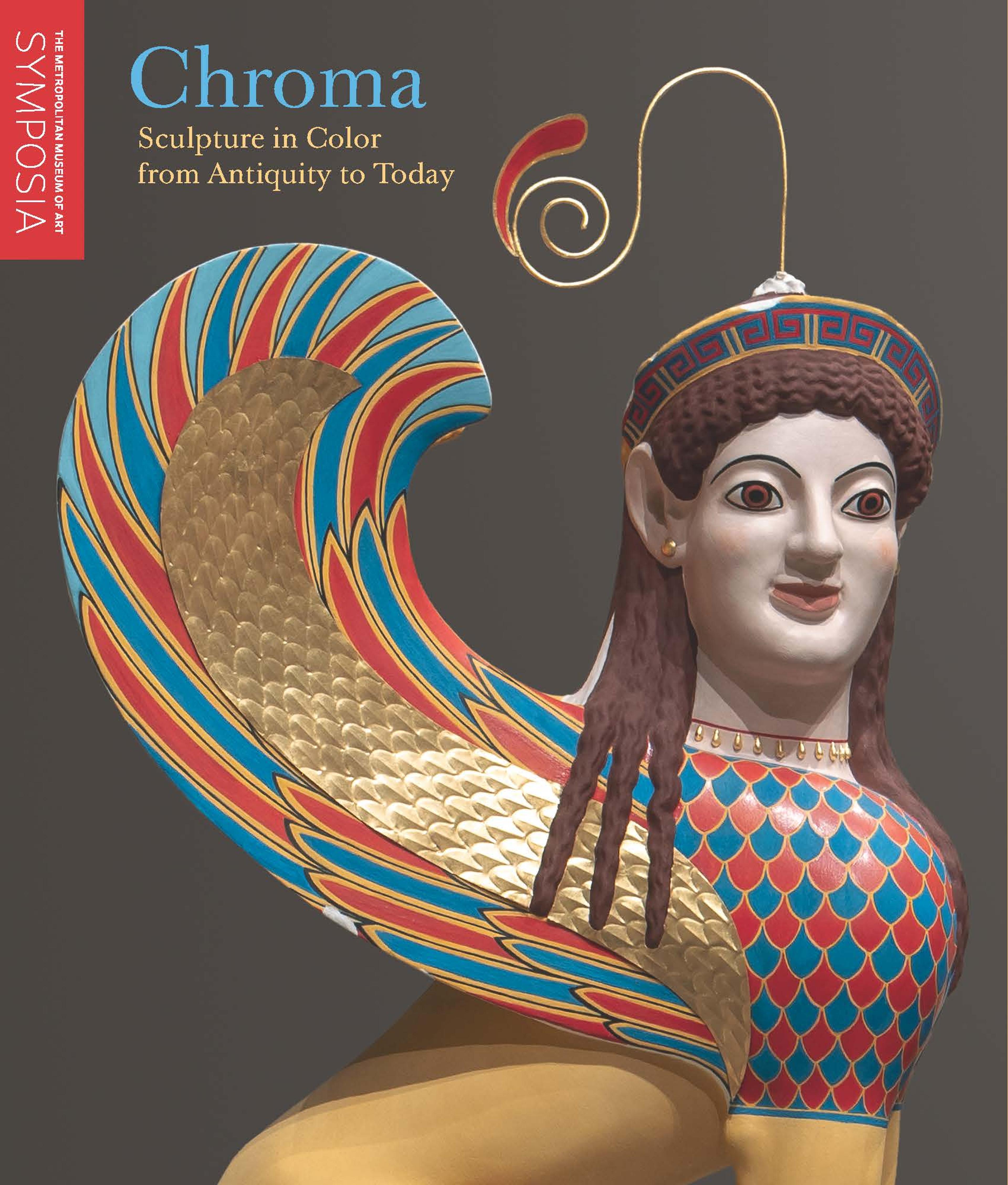Terracotta loutrophoros (ceremonial vase for water)
Prothesis (laying out of the dead); below, horsemen
On the neck, mourners
Loutrophoroi were used to fetch water for the bridal bath and for certain funerary rites. This vase may have been used in rituals at the grave, for it was made with no bottom so that offerings poured into it could reach the dead under ground. It is decorated with scenes of the ceremonies that preceded burial. On the shoulder of the vase, a dead youth lies on a high couch, surrounded by grieving women–his relatives and perhaps professional mourners. Their hair has been cut short as a sign of mourning, and they make the traditional gestures of lamentation. Their open mouths indicate that they are singing a funeral song. On either side, men walk in procession with their right arms raised and their mouths open, also in funeral lament. Below, horsemen similarly gesture with their arms. Above, on the neck, is another group of mourning women, one holding a loutrophoros.
On the neck, mourners
Loutrophoroi were used to fetch water for the bridal bath and for certain funerary rites. This vase may have been used in rituals at the grave, for it was made with no bottom so that offerings poured into it could reach the dead under ground. It is decorated with scenes of the ceremonies that preceded burial. On the shoulder of the vase, a dead youth lies on a high couch, surrounded by grieving women–his relatives and perhaps professional mourners. Their hair has been cut short as a sign of mourning, and they make the traditional gestures of lamentation. Their open mouths indicate that they are singing a funeral song. On either side, men walk in procession with their right arms raised and their mouths open, also in funeral lament. Below, horsemen similarly gesture with their arms. Above, on the neck, is another group of mourning women, one holding a loutrophoros.
Artwork Details
- Title: Terracotta loutrophoros (ceremonial vase for water)
- Period: Archaic
- Date: late 6th century BCE
- Culture: Greek, Attic
- Medium: Terracotta; black-figure
- Dimensions: H. 27 3/4 in. (70.5 cm)
- Classification: Vases
- Credit Line: Funds from various donors, 1927
- Object Number: 27.228
- Curatorial Department: Greek and Roman Art
More Artwork
Research Resources
The Met provides unparalleled resources for research and welcomes an international community of students and scholars. The Met's Open Access API is where creators and researchers can connect to the The Met collection. Open Access data and public domain images are available for unrestricted commercial and noncommercial use without permission or fee.
To request images under copyright and other restrictions, please use this Image Request form.
Feedback
We continue to research and examine historical and cultural context for objects in The Met collection. If you have comments or questions about this object record, please contact us using the form below. The Museum looks forward to receiving your comments.
